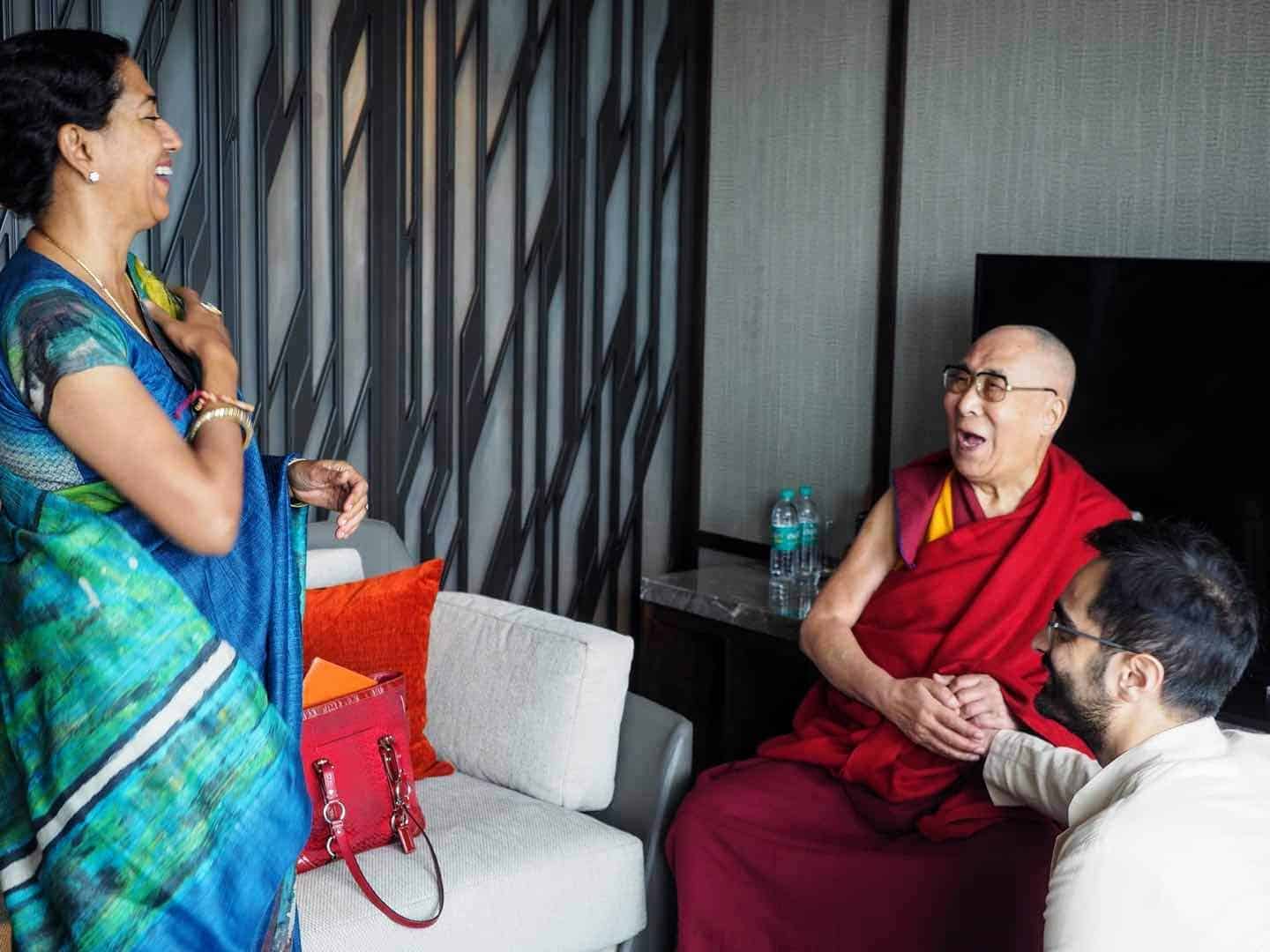The monk and the mother
The Dalai Lama on wisdom and ageing part 3
When you are caught in the middle of a conflict, take the Dalai Lama’s advice: think for yourself
With children, it is the other side of the spectrum. You want their respect and affection without the whining and the talking-back. You want the softness that they exude, mostly when asleep, without the sullenness. You want to feel close to them even though you are often overwhelmed by the responsibilities of parenting. Sometimes you just want to run away from it all – retreat into the warm cocoon of childhood. What does a monk know about these paradoxes of modern life, I thought.
The night before I met His Holiness, I had yelled at my daughter and got irritated with my mother. I apologised contritely. Won’t happen again, I said. But of course it would.
What do you do when you are angry? I ask His Holiness.
I expect a discourse. Instead, he says, “Hit yourself,” with his typical cackle of laughter. “When strong anger comes, go like this.” He hits himself in the side of his head and laughs.
Mixing the playful with the profound is His Holiness’s signature. The Nalanda tradition that the Dalai Lama follows has very specific practices to equalise emotions. Veer Singh, the founder of Vana, told me that His Holiness wakes up at 3.30am and meditates for several hours. A lot of his practice involves visualisation: sending love to all directions.

Even monks have their moments, though.
The Dalai Lama recounts an incident in Zanskar when he got angry with some officials.
He talks about sadness, regret and paths to contentment.
“My own age, 83,” he says. “This morning, I saw some young people doing physical exercise. I felt… no longer can I do that. But then, I think. I can use my life in some service to others. That’s the main thing. The physical sort of strength is not very important. So when I saw these young people, very active, I thought now I cannot do these things but no reason to feel sad.
You move to contentment. You look from a wider perspective. Like that.”For me, it is not so easy. I struggle to be a supportive colleague, a present parent, an affectionate child. Every study worth its salt, like the Harvard Grant study (look it up), says that the secret to a good life is loving relationships. A Hawaiian healing practice called Ho‘oponopono is entirely about love and forgiveness. The late Marion Woodman, a psychologist I admire, talks about love as “the energy that cherishes,” that helps everyone around you flower. The Dalai Lama is a living embodiment of the power of love. His portrait hangs in my living room and affects the way I live my life.
I’ve tried all sorts of meditation. I’ve used apps and mantras. Most of them expand the mind and focus the attention: two seemingly contradictory things. Loving-kindness meditation, like EFT (Emotional Freedom Technique) is a good option when you are triggered: mad. Neither is easy because you are attempting to fake love till you feel love. As an experiment, try this: When you feel depressed and anxious, sit cross-legged, imagine being surrounded by your loved ones.
Similarly, when you are so angry with your spouse that you could strangle him, walk away. Sit alone in a room and send him love and forgiveness. Hard to do, I know, but what else are you going to do? You have to climb down from your ledge somehow.
Unlike our smartphones, such practices don’t give instant feedback. Try 20 minutes a day. Like Jerry Seinfeld, who marked a calendar for each day that he wrote a joke, try using apps like Streak to keep up your winning (or in this case, meditation) streak. In it lies your destiny.
The Dalai Lama believes that you are in charge of your life and your choices. “I don’t think there is some independent sort of decision maker,” he says. “One’s own thinking, vision, effort and then of course circumstances, all make a difference. Then you create your own destiny.”
Simply put, meditating for 20 minutes a day can change your life. And your destiny.
This is the final part of the series on ‘The Dalai Lama’s Take On Ageing And Wisdom’. Shoba Narayan’s regular column will continue next fortnight. Read part 1 and part 2.
(This column addresses the issue of parenting our parents, an integral part of This Indian Life and our culture. If you have stories about the weird and wonderful relationships that enrich or enervate your life, write in.)
This Indian Life appears every fortnight
From HT Brunch, October 14, 2018
BRUNCH Updated: Oct 13, 2018 22:23 IST
-k4lD-U204025897261YmH-250x250%40HT-Web.jpg)




Leave A Comment